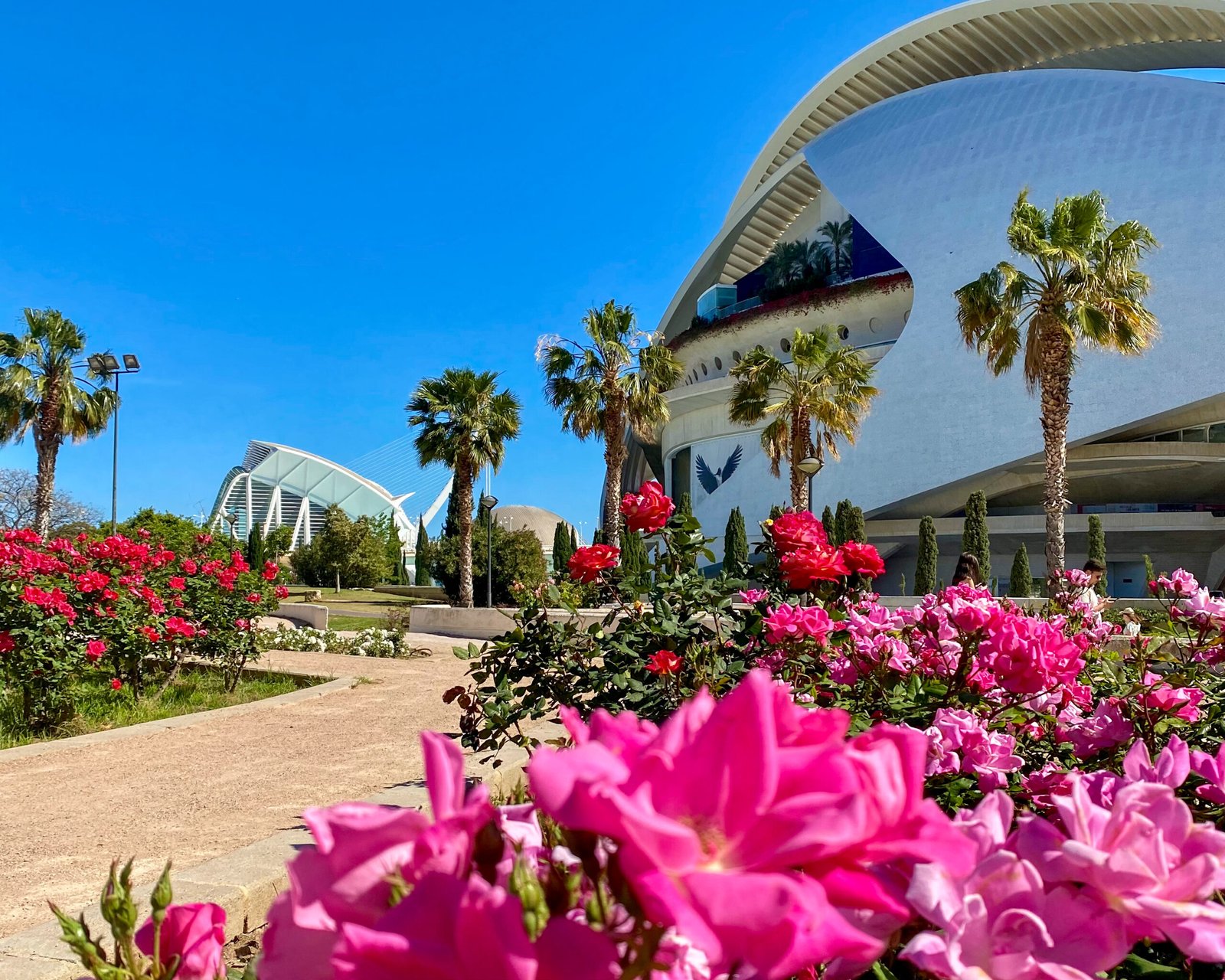
Overview of Valencia for living
Valencia, Spain’s third largest city, perfectly combines modernity and tradition. Its Mediterranean climate, urban beaches and rich cultural offerings make it one of the best cities to live in Europe. With a relaxed lifestyle, excellent infrastructure and a more affordable cost of living than other major cities such as Madrid or Barcelona, Valencia offers an ideal environment for families, young professionals and retirees alike.
Why consider moving to Valencia
Moving to Valencia is a decision that many consider for its quality of life. Its mix of culture, gastronomy, and nature offers a balanced environment between city and tranquillity. In addition, it has an efficient transport network, a vibrant social life, and a growing technological and entrepreneurial ecosystem, making it an attractive destination for both those seeking employment opportunities and those wishing to enjoy a relaxed lifestyle by the sea.

Pros of living in Valencia
- Mediterranean climate and lifestyle. Valencia enjoys a privileged climate, with more than 300 days of sunshine a year and mild temperatures for most of the year. This Mediterranean climate favours a relaxed, outdoor lifestyle, where terraces, walks on the beach and outdoor activities are part of everyday life. In addition, the Mediterranean diet, rich in fruit, vegetables, fish and olive oil, is a key aspect of the region’s healthy lifestyle.
- Affordable cost of living. Compared to other major European cities, such as Madrid or Barcelona, Valencia offers a considerably lower cost of living. Housing rents, services, food and leisure are more affordable, allowing a high quality of life to be enjoyed without the need for a large budget. This makes Valencia attractive to both locals and expatriates looking for reasonably priced urban living.
- Rich culture and history. Valencia has a vast history dating back more than 2,000 years. The city is home to historic monuments such as the Lonja de la Seda, the Miguelete and the City of Arts and Sciences, fusing the ancient with the modern. In addition, its calendar is full of cultural events, with Las Fallas being the most famous festival, combining art, fire and tradition. It also has a wide range of museums, galleries and theatres that allow residents to be immersed in the local culture.
- Excellent transport and infrastructure. Valencia has an efficient public transport system, including buses, trams and a modern metro that connects much of the city and its surroundings. In addition, the city is very accessible, with an international airport nearby and high-speed trains (AVE) connecting Valencia to other cities such as Madrid in just 1.5 hours. The infrastructure is well developed, with urban planning that makes it easy to get around both by car and bicycle.
- Outdoor activities and beaches. Valencia’s beaches, such as La Malvarrosa or El Saler, are only a few minutes away from the city centre, allowing residents to enjoy the sea and sand without going too far away. In addition, the city offers a wide variety of parks and natural areas, such as the Albufera Natural Park and the Turia Garden, a huge urban park that runs through the city, ideal for sports, walking or enjoying nature. All this encourages an active, outdoor lifestyle.
- Friendly and welcoming community. Valencians are known for their open and welcoming character. The city has a growing multicultural community, making it an inclusive place for people of different nationalities. This, combined with the city’s relaxed atmosphere, facilitates integration and the creation of social ties, both with locals and other expats. In addition, Valencia is a safe city, which adds an extra attraction for those looking for a quiet and comfortable environment to live in.

Cons of living in Valencia
- Summer heat and humidity. During the summer months, especially in July and August, Valencia experiences very high temperatures, often exceeding 35°C, accompanied by high humidity. This can make the climate uncomfortable, even stifling, for some people. Nights can be particularly hot, making it difficult to rest without air conditioning. Although the proximity to the sea offers some relief, the extreme heat is a disadvantage for those not used to these climates.
- Limited job opportunities in certain sectors. Despite being a growing city, Valencia does not offer as many job opportunities as Madrid or Barcelona, especially in specialised sectors such as technology, finance or creative industries. Although there is a growing community of startups and tech companies, the local economy is still very much focused on tourism, construction and commerce, which can limit options for those seeking employment in more diversified or specialised sectors.
- Language barrier (Valencian and Spanish). Although the predominant language in Valencia is Spanish, Valencian is also official and is used in public administration, education and local media. Although it is not compulsory to learn Valencian to live in the city, some official procedures and documents may be in both languages. Moreover, in certain jobs or educational environments, especially in the Valencian Community, it may be a requirement or an advantage. For newcomers, this situation may generate some confusion or a language barrier.
- Noise and crowds during festivities. Valencia is known for its vibrant festivities, especially Las Fallas, a month-long celebration that culminates in March. While these festivities are part of the city’s cultural charm, they also bring with them a significant increase in noise, crowds and congestion, particularly in the centre. The fireworks, known as “mascletás”, are extremely loud and occur daily during the Fallas. For those who prefer quiet or do not enjoy large crowds, these events can be exhausting.
- Bureaucracy and administrative challenges. As in many other cities in Spain, the administrative process in Valencia can be slow and complicated. Formalities such as obtaining a NIE, registering on the census or processing residency documents can involve long waits, excessive paperwork and a lack of clarity in procedures. In addition, the need for prior appointments and the incomplete digitalisation of some services mean that some processes take longer than expected, which can be frustrating, especially for newcomers or expatriates.




